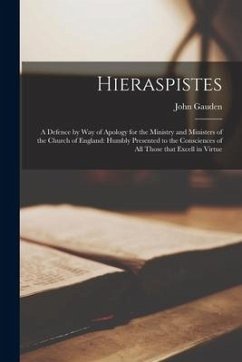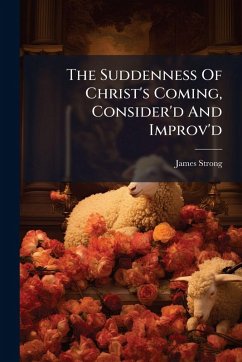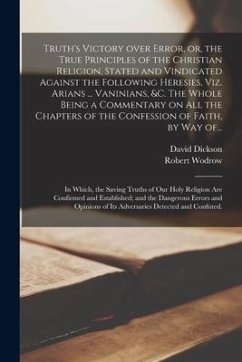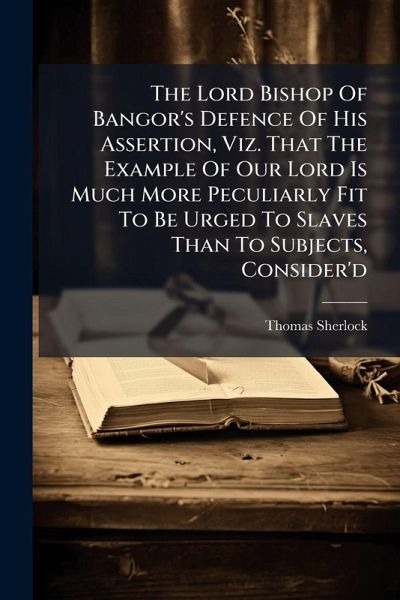
The Lord Bishop Of Bangor's Defence Of His Assertion, Viz. That The Example Of Our Lord Is Much More Peculiarly Fit To Be Urged To Slaves Than To Subjects, Consider'd
Versandkostenfrei!
Versandfertig in über 4 Wochen
14,99 €
inkl. MwSt.

PAYBACK Punkte
7 °P sammeln!
In "The Lord Bishop Of Bangor's Defence Of His Assertion, Viz. That The Example Of Our Lord Is Much More Peculiarly Fit To Be Urged To Slaves Than To Subjects, Consider'd," Thomas Sherlock, the Bishop of Bangor, defends his controversial assertion regarding the applicability of Jesus's example to slaves versus subjects. This work delves into the theological and political arguments surrounding obedience, authority, and the interpretation of Christian teachings in the context of 18th-century social hierarchies. Sherlock's defense provides insights into the prevailing attitudes toward slavery and...
In "The Lord Bishop Of Bangor's Defence Of His Assertion, Viz. That The Example Of Our Lord Is Much More Peculiarly Fit To Be Urged To Slaves Than To Subjects, Consider'd," Thomas Sherlock, the Bishop of Bangor, defends his controversial assertion regarding the applicability of Jesus's example to slaves versus subjects. This work delves into the theological and political arguments surrounding obedience, authority, and the interpretation of Christian teachings in the context of 18th-century social hierarchies. Sherlock's defense provides insights into the prevailing attitudes toward slavery and the divine right of kings, offering a window into the complex relationship between religious doctrine and social order during this period. Scholars interested in the history of Christian ethics, political theory, and the debates surrounding slavery will find this a valuable primary source. This work has been selected by scholars as being culturally important, and is part of the knowledge base of civilization as we know it. This work was reproduced from the original artifact, and remains as true to the original work as possible. Therefore, you will see the original copyright references, library stamps (as most of these works have been housed in our most important libraries around the world), and other notations in the work. This work is in the public domain in the United States of America, and possibly other nations. Within the United States, you may freely copy and distribute this work, as no entity (individual or corporate) has a copyright on the body of the work. As a reproduction of a historical artifact, this work may contain missing or blurred pages, poor pictures, errant marks, etc. Scholars believe, and we concur, that this work is important enough to be preserved, reproduced, and made generally available to the public. We appreciate your support of the preservation process, and thank you for being an important part of keeping this knowledge alive and relevant.




![Defence of Doctrinal Statements [microform]: Addressed to the Right Rev. the Lord Bishop of Toronto, the Right Rev. the Lord Bishop of Huron, and the Cover Defence of Doctrinal Statements [microform]: Addressed to the Right Rev. the Lord Bishop of Toronto, the Right Rev. the Lord Bishop of Huron, and the](https://bilder.buecher.de/produkte/66/66185/66185495n.jpg)
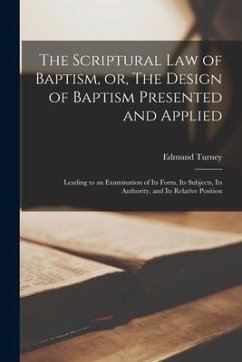
![A Letter to the Rt. Rev. Dr. Binney, Bishop of Nova Scotia [microform]: Containing Observations on the Origin of the Synodical Movement and a Defence Cover A Letter to the Rt. Rev. Dr. Binney, Bishop of Nova Scotia [microform]: Containing Observations on the Origin of the Synodical Movement and a Defence](https://bilder.buecher.de/produkte/65/65619/65619132n.jpg)

![Presbyterianism and Swedenborgianism [microform]: Being a Defence & Reply to a Piece Upon, and Against Swedenborgianism Appearing in Cover Presbyterianism and Swedenborgianism [microform]: Being a Defence & Reply to a Piece Upon, and Against Swedenborgianism Appearing in](https://bilder.buecher.de/produkte/65/65602/65602469n.jpg)
